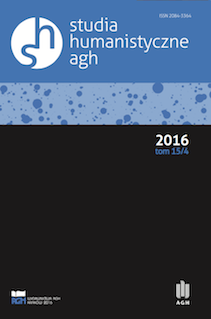AKTYWIZACJA ZAWODOWA PRZEZ URYNKOWIENIE. LUDZIE DLA INSTYTUCJI CZY INSTYTUCJE DLA LUDZI (NA PRZYKŁADZIE AKTYWIZACJI ZAWODOWEJ NIEPEŁNOSPRAWNYCH ABSOLWENTÓW SZKÓŁ WYŻSZYCH)
COMMERCIALISATION OF OCCUPATIONAL DEVELOPMENT SERVICES. PEOPLE FOR THE INSTITUTIONS OR INSTITUTIONS FOR THE PEOPLE (CASE ANALYSIS OF OCCUPATIONAL DEVELOPMENT OF DISABLED UNIVERSITY GRADUATES)
Author(s): Ewa Giermanowska, Mariola RacławSubject(s): Labor relations, Welfare systems, Higher Education , Educational Psychology, State/Government and Education, Behaviorism, Family and social welfare, Welfare services
Published by: Wydawnictwa AGH
Keywords: disabled student; disabled graduate; social support; labour market;
Summary/Abstract: Poland is a country with very low labour force participation among people with disabilities. On the one hand, changes are visible in the attitudes and behaviour of people with disabilities, especially students and graduates who aim to have a professional career. On the other hand, one can observe a process of gradual withdrawal of families from caring and active support of the disabled. This situation demands certain compensatory measures such us intensification of engagement of relevant institutions and seeking alternative ways of providing care and support. The Polish system of occupational development services for the disabled is complicated and nontransparent for the beneficiaries. It is also inadequate for the growing professional aspirations of people with disabilities. Employees of support institutions tend to follow long-standing routines and patterns of behaviour defined by formal rules, rather than adjusting to the individual needs of the disabled and the changing labour market. Commercialisation of support institutions, within the framework of the new paradigm of social policy, has contributed to economisation of support institutions by focusing on benefits and profits to the institution, rather than the professional development of disabled people. Thus, we have an unfinished process of labour emancipation of disabled university graduates who cannot satisfy their career aspirations.
Journal: Studia Humanistyczne AGH
- Issue Year: 15/2016
- Issue No: 4
- Page Range: 21-34
- Page Count: 14
- Language: English

